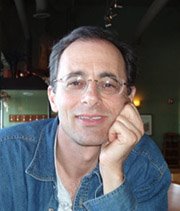A presentation by Dr. Dwight Atkinson, Purdue University
Monday, November 3, 2008
Language and Literature 316
Presentation: 2:00 – 3:00 p.m.
Reception: 3:00 – 4:00 p.m.
Based on the assumption that second language acquisition (SLA) is an internal cognitive process, SLA studies is increasingly viewed as a branch of cognitive science. But cognitive science is a vast enterprise featuring diverse perspectives on cognition. In this presentation, I examine how one such perspective, the extended mind hypothesis (e.g., Clark & Chalmers, 1998), might be brought to bear in understanding second language acquisition.
The extended mind hypothesis holds that human cognition subserves real-world ends: adaptive behavior promoting organismic survival. More specifically, cognition is viewed as part of a functionally integrated system comprising brain, body, tools, ecological affordances, interactants (including other human beings), and situated activity systems. In this sense, cognition extends beyond the head and into the ecosocial world. Such extension allows human beings to align with our ever-changing environments in ways that promote our well-being and survival.
If SLA is a cognitive process, but cognition extends into the world, then what does this mean for second language learning? I discuss three possibilities, both negative and positive: 1) the cognitive-social/head-world dichotomy is largely meaningless; 2) SLA can be viewed as an ecologically adaptive process; and 3) the fine details of individuals’ alignment with their ecosocial environments matter fundamentally in SLA. I illustrate this last point using videotaped interactions of a Japanese EFL learner with her tutor, textbook, and sociocognitively constructed world.
 Dr. Dwight Atkinson is an applied linguist and second language educator who specializes in writing (first and second language), qualitative research approaches, and second language acquisition. Current projects include an attempt to establish a view of second language acquisition on “sociocognitive” principles and research in India on the experiences of vernacular language-schooled students in English-language universities. Past work has covered a wide variety of topics, from the history of medical and scientific research writing in English, to critiques of commonly used concepts in university writing instruction such as critical thinking and voice, to explorations of the concept of culture, to writings on qualitative research methods. Atkinson teaches courses in qualitative research, postmodernism, and second language acquisition at Purdue University, where he is an associate professor of English.
Dr. Dwight Atkinson is an applied linguist and second language educator who specializes in writing (first and second language), qualitative research approaches, and second language acquisition. Current projects include an attempt to establish a view of second language acquisition on “sociocognitive” principles and research in India on the experiences of vernacular language-schooled students in English-language universities. Past work has covered a wide variety of topics, from the history of medical and scientific research writing in English, to critiques of commonly used concepts in university writing instruction such as critical thinking and voice, to explorations of the concept of culture, to writings on qualitative research methods. Atkinson teaches courses in qualitative research, postmodernism, and second language acquisition at Purdue University, where he is an associate professor of English.
Sponsored by Interdisciplinary Committee on Linguistics and the Department of English
Labels: announcement, applied linguistics, composition, L2 writing, MTESOL



